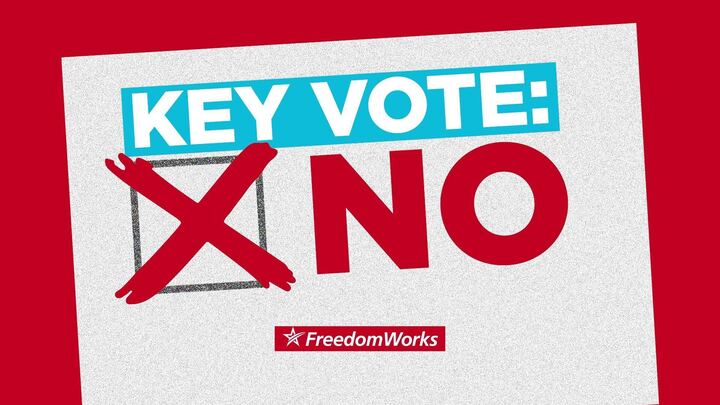USA Freedom 3.0 – Steps Forward and Missed Opportunities
Today, the House will likely pass their bill, the USA FREEDOM Act, to reform and reauthorize the controversial Section 215 of the USA PATRIOT Act. This portion of the 2001 law was revealed by Edward Snowden to be the legal justification for the massive, nearly limitless collection of American citizens’ telephone metadata by the NSA. Unfortunately, this year’s USA Freedom Act as currently conceived is weaker than previous versions.
The bill does makes some strides forward. For starters, it explicitly bans the true limitless collection of telephone data by forcing the government to use a “specific selection term” (SST) in any surveillance warrant. This SST is defined to prevent the NSA or FBI from scooping up data from an entire service provider (like Verizon or AT&T) or even an entire state, county, or ZIP Code. In this sense, USA Freedom should end bulk collection of phone records, in the sense that the government cannot actually take control of and store this massive quantity of data themselves.
However, the bill merely shifts the procedure to having the government ask companies to query their data for them, and leaves open the possibility that the records searched could still encompass broad ranges of individuals at once. One example is the definition of "persons" under a Specific Selection Term, which is overly broad and can include a corporation as a "person", which leaves obvious room for broad collection.
One of the major weaknesses of this year’s USA Freedom Act relative to previous versions is its total lack of defined procedures for the “super-minimization” of data – that is, how the government is supposed to delete the data of people not related to their investigation. While the current bill requires the government to delete surplus data, how this is done is left to the agencies, as opposed to the more specific requirements included in last year’s Senate version of the bill. The stricter minimization procedures are needed, since this bill continues to allow for the collection of data two degrees of separation from the initial target, a web that can ensnare the data of tens of thousands of innocent Americans.
This version of the USA Freedom Act also reauthorizes Section 215 through the end of 2019, fully two years longer than any previous version of the bill. The entire point of a sunset is so that new Congresses are forced to periodically review the effects of a controversial policy, and to make modifications as needed. Given the justly heightened controversy surrounding the surveillance of Americans, a shorter sunset is necessary.
This bill also expands the legal immunity for companies which provide data for the government, by removing the clause that this data sharing must be “in good faith”. USA Freedom also (as it did last year) compensates companies for their time and trouble supplying said data. For many of these phone companies, this removes a major incentive to be advocates for surveillance reform, since they can no longer be held liable for the misuse of any data the government demands under Section 215.
In addition, this year’s USA Freedom Act (unlike the original version introduced in the House last year) does not address any of the other mass surveillance authorities that the government is using to sweep up not only metadata, but the contents of Americans’ communications. In many ways, while the telephone data collection under Section 215 is more widely known, the collection of email content and web browsing histories under the back-door search loophole in Section 702 of the FISA Amendments Act is even more concerning. The same goes for the mass surveillance under Executive Order 12333, and for the government installing security back-doors into American tech products so they can hack them more easily.
Given the depth of surveillance reform that it doesn’t touch, and given the flaws in the bill, the USA Freedom Act, although a positive step, represents a missed opportunity to achieve truly effective reforms.
USA Freedom Act could easily have been made stronger through a robust debate and amendment process in the House. Instead, House leadership and the Intel committees scuttled the amendment process in the Judiciary Committee, and have refused to allow any amendments whatsoever on the floor of the House.
Hope for improvement lies in the Senate, where traditionally members have a more open ability to suggest changes to bills. But Majority Leader McConnell has proved to be a stark enemy of surveillance reform, and may move to block amendments. Senators Rand Paul and Ron Wyden have each declared their intention to demand amendments to strengthen the bill when it come up in the Senate, and FreedomWorks greatly supports his demand.



